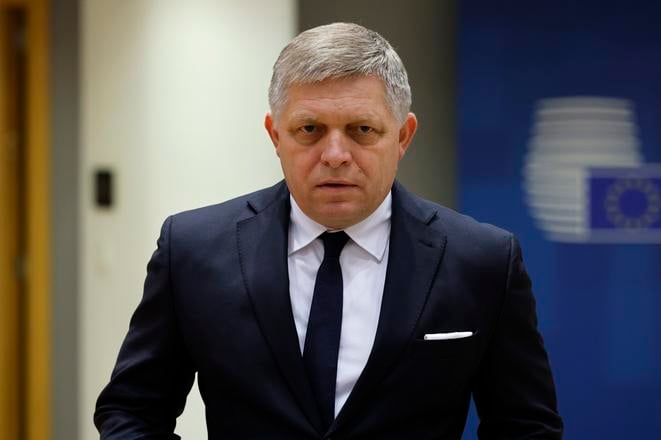Prime Minister Robert Fico has released a video accusing Western countries of deliberately prolonging the war in Ukraine, while facing fresh domestic scrutiny over a multibillion‑euro nuclear power project awarded without a public tender.
In a 16‑minute address on Sunday, 27 June, Fico claimed that “some European leaders are tired of 80 years of peace” and want to escalate tensions with Russia. He alleged that the West sabotaged peace talks between Kyiv and Moscow in spring 2022 and seeks to “weaken and carve up” Russia for its resources – assertions widely echoed by Russian state media.
Fico’s allegation refers to negotiations held in Istanbul in March and April 2022, when Ukraine signalled it might suspend its NATO ambitions and temporarily tolerate Russia’s occupation of Crimea and parts of the Donbas. The talks collapsed after Moscow demanded broad veto powers over any future military support for Ukraine – conditions Kyiv deemed unacceptable. Reporting by The New York Times later showed that while countries such as the US and Poland were sceptical about a deal, it was ultimately Russia’s maximalist demands and subsequent military escalation that derailed the talks. President Vladimir Putin refused a ceasefire and intensified strikes on Ukrainian cities.
Fico claims Russia has overtaken Germany economically
Fico further claimed that Russia’s economy is now stronger than Germany’s, despite World Bank data showing Germany’s GDP at $4.7tn last year, more than double Russia’s $2.2tn. Economists note that Moscow’s modest growth stems mainly from war‑driven spending, with inflation near 9 percent.
“Today, Russia’s economy is considered stronger than Germany’s, although a few years ago the opposite was true,” Fico claimed.
The video omits that Russia launched its full‑scale invasion in February 2022, after annexing Crimea in 2014, and later declared four additional Ukrainian regions its own without fully controlling them.
Fico defends Westinghouse nuclear plant plans
Domestically, Fico defended plans to build a new nuclear plant with US firm Westinghouse, calling it “vital for Slovakia”. Critics, including opposition parties and media, have objected to the absence of a competitive tender for what would be the country’s largest‑ever investment. Czechia recently completed a similar tender, which a South Korean company won.
Fico also attacked Slovak media, accusing them of preparing the public for pension cuts under a potential liberal government. Analysts warn that while Slovak pensions remain modest in absolute terms, their rapid growth relative to the economy is fiscally unsustainable.



